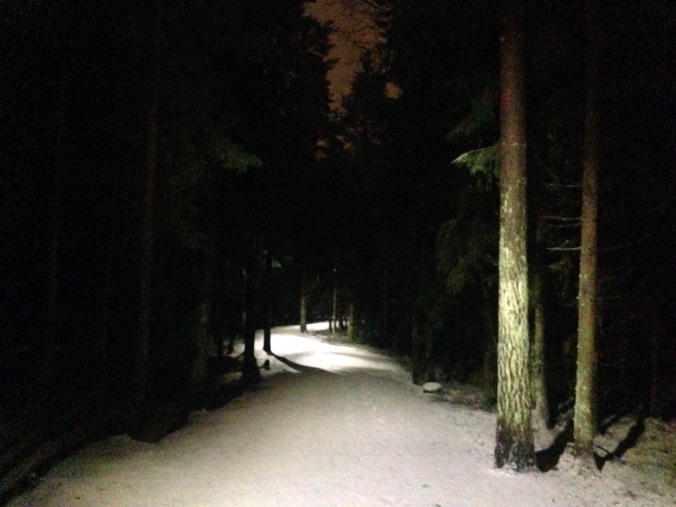Even the best of people toss around the age-old platitude we should forget about the past and the future, and live for the present moment. Bullshit, I say. Pretty much anything worth doing is done for the sake of the future. I prepare a meal so that a half-hour into the future, I might enjoy eating it. I pick up a book in the library so that once I’m home, I might enjoy reading it. Sure, if you’d advise me to be present and make the most of the cooking and the library trip, that would be excellent advice. But that advice says nothing about what we should, or should not*, presently do. It is only with an eye to the future that we can make such decisions.
But how do we do that, since we don’t know the future?
Again, bullshit. We know the future pretty damn well. Or, should I say, we know one future. The other one, though…
So, for all practical purposes, there are two futures: the future known and the future unknown.
The future known is something we create, build, and project, using what we know about the objective world as its building blocks. Based on what we know about the world, we come up with a picture of what will happen. Even for someone who isn’t very good at forecasting their own life, the picture is likely to be more accurate than not. You pretty much know you’ll wake up, brush your teeth, skip flossing (again…), have some coffee that’ll taste bad because of the toothpaste flavor still lingering in your mouth, you know you’ll listen to some Miles Davis on your headphones while commuting, and you’ll be just a couple of minutes late (again…), and so on.
The picture you build is roughly as accurate on big matters as it is on the small details of our daily lives. You know who’s the president of your country, and when elections come up, you know who the real contenders are. If you live at the Arctic Circle, you know sandstorms aren’t in the forecast (and that hailstorms may be). You know there’s not going to be a fully automatised gay space communist revolution any time soon. The big picture you create, in turn, informs your predictions, and desires, for your personal life: who to vote for, whether or not it’s worth your time to try to prevent that gay space communist revolution or to try to make it happen, and whether to kit your house with a new fan or a new heater. These choices turn into plans, predictions… and into reality. (The Egyptophiles among my readership may want to consider the concept of Kaw here…)
We consult the future known for all the decisions we make. But sometimes, there are matters that the picture we built doesn’t cover.
For non-Initiates, personal lives often fall quite neatly within the future known (though, in behaviour that’s quite typical for the Right-Hand-Path, this may be denied in order to shift blame to other people or to God’s mysterious ways, such as your friends who know their relationship will never work out but who refuse to acknowledge that and act accordingly, preferring to pretend it’s out of their hands).
But the Initiate, who is constantly seeking self-transformation, knows what she knows about herself and her future life and deeds; and knows that knows she doesn’t know all about it. She knows that the world is full of mysteries, and knows better than to look for them outside herself. Enter the future unknown, the realm of becoming. Of that, I cannot speak.
So how does divination work, then? There’s two mechanisms. Most often, divinatory tools become aides for the Initiate in gaining that absolute frankness with oneself that enables one to recognise what one already knows. The cards and crystal balls are there to make us more confident in our painting of the picture of the future known.
Sometimes, however, our divinatory tools take us genuinely into the realm of the unknown. We dip our toes into the stream of that which is to come, perhaps even step confidently into it with both our feet in the waters of the three Giantesses. In that case, we are not so much gaining knowledge about something predestined as we are doing a Greater Black Magical Working of seeing ourselves into ones that see farther.
Shaping ourselves, we find we can shape farther.
Another stretch of future we’ve made known by creating it in the first place.
By this point, you probably guessed that a division to the known and the unknown isn’t a privilege enjoyed only by the future. There’s a known and unknown level to the past and present, too — it’s just more obvious in the case of the future. That makes our futures deep with mystery so that we can draw insight from there about who we are and were; and a fertile canvas to be consciously shaped.
…Having written that last sentence, I decide to shape a future where I don’t mix three metaphors in one! What does yours look like?

*For the Anglo-Saxon linguist, Skuld or Skuld not…